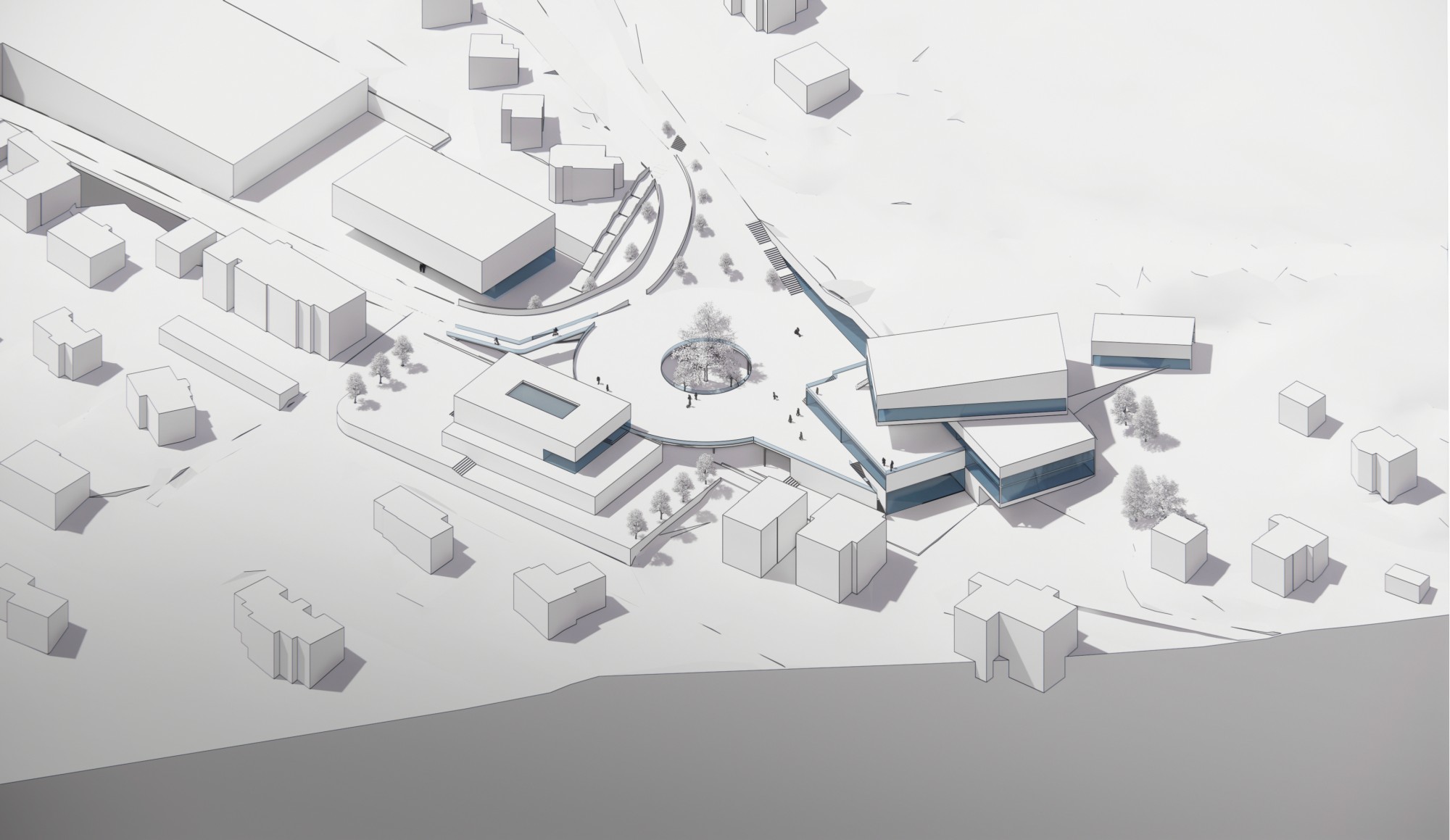The project in detail
Leysin, with its sports centres, private colleges, its Club Med... A destination with the “Alpine Village of Taste” label, the Vaud resort must nevertheless reinvent itself in the light of new socio-economic-climatic challenges. From a macro point of view, the Berneuse, perched at an altitude of 2,048 metres above sea level, offers exceptional panoramic views over the whole region. From a micro point of view, due to the development of the village, reality paints another picture: the village has been cut off from its natural environment, by the installation, on the street front, of a large building housing the cable car station so blocking the view of the mountain from the public.
As part of the municipality's “Vision 2030” project, this feasibility study aims to “assess different possibilities for the location of the planned terminus station, the cable car’s departure along with the bus transport hub”. A vast programme, which will redefine the heart of the resort with a new public square, but will also be able to respond to realities that will irrevocably modify the tourist offer of a resort which has made it its business card since the reception of its first foreign patient, in 1873.
“Leysin, Oxygen of the Alps”
The objective of the study must “enable the enhancement of the surroundings, (...) as well as the optimisation of the management of multimodal flows and the development of a new concept of mobility on the municipal territory”. This can also be seen as the possibility of offering a new lung of mobility to the heart of the village, by embracing a little more its slogan “Leysin, Oxygen of the Alps”. Moving from words to actions. Anticipating climate change in ski resorts. Articulating a sustainability approach for the tourism sector. Promoting 4-season attractiveness. Considering the possibility of skiing in an eco-responsible way.
With an ecological and environmental awareness and vision, the scale of the hub project should make it possible to engage in significant means of reflection to reduce its footprint, both in its construction and operation.
Planning for the future
It is not only a hub. In its own right, it is an interface that concentrates the challenges of today and the realities of tomorrow. The renewal of today’s facilities combined with a new transport infrastructure represents a rare opportunity to redefine and consolidate local life as well as an innovative, promising and sustainable tourism resort.












-desktop.jpg)
-desktop.jpg)

-desktop.jpg)
-desktop.jpg)
-desktop.jpg)



